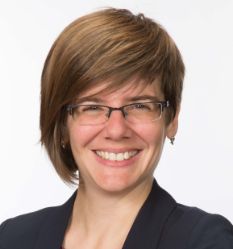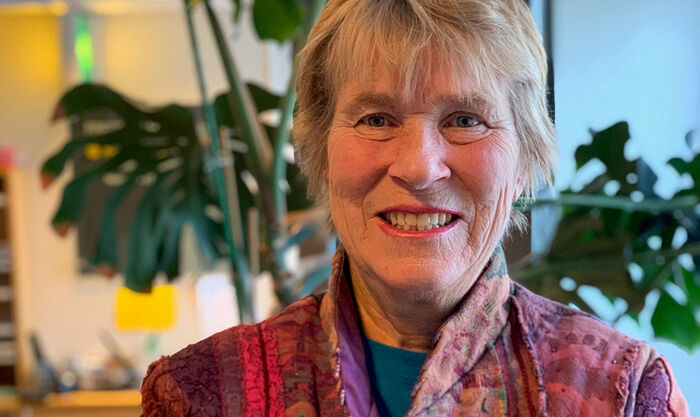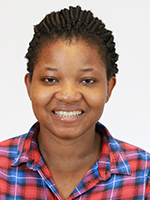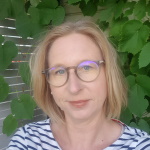Previous events - Page 75
Welcome to this seminar, where Danica Kragic, Professor at the School of Computer Science and Communication at the Royal Institute of Technology, KTH, will talk about human action modelling and human-robot collaboration.
NCMM Associate Investigators, Magnus Aronsen, Associate Professor and Head of the Experimental Cardiology Group at the Institute of Basic Medical Sciences, UiO, and Alicia Llorente, Senior Scientist at the Institute for Cancer Research, Oslo University Hospital, will present their research as part of the NCMM Tuesday seminar series.
Master of Arts Emily Christine Oswald at the Department of Education will be defending the thesis "Pa-KOW! Doing Participatory Knowledge Work in Museums and Archives" for the degree of Ph.D.
Cand.med. Petter Storsten at Institute of Clinical Medicine will be defending the thesis “Studies on regional myocardial function in the right-and left ventricle: Impact of dyssynchrony and increased afterload” for the degree of PhD (Philosophiae Doctor).
MSc Kristina Totland Carm at Institute of Clinical Medicine will be defending the thesis “Genomic aberrations and molecular subtypes in multifocal prostate cancer” for the degree of PhD (Philosophiae Doctor).
Professor Johanne Sundby from the Department of Community Medicine and Global Health, turns 70! We welcome you to join her celebration seminar on Zoom.
Emma Vikstr?m has a PhD in education and is currently working as a researcher and lecturer in the teacher training programme at ?rebro University, Sweden. Her research interests lie in the fields of the history of education and history of ideas and focus on historical change regarding educational goals and means. She will be presenting some parts of her recently published thesis on eugenics and education in Ellen Key’s work.
MSc Laura Cristina Trachsel Moncho at Institute of Basic Medical Sciences will be defending the thesis “Lipid-binding proteins in selective and non-selective autophagy” for the degree of PhD (Philosophiae Doctor).
MSc Katrine Rolid at Institute of Clinical Medicine will be defending the thesis “High-intensity interval training in de novo heart transplant recipients with long-term follow-up” for the degree of PhD (Philosophiae Doctor).
Doctoral candidate Nancy Saana Banono at the Department of Pharmacy, Faculty of Mathematics and Natural Sciences, is defending the thesis "Functional analysis of psychiatric risk genes in zebrafish (Danio rerio): a focus on the L-type voltage-gated calcium channel subtypes Cav 1.2 and Cav 1.3" for the degree of Philosophiae Doctor.
‘Common prosperity’ is an important goal for the future development of the Chinese economy. This is a response to several decades of increasing inequality during the reform era. Which groups of the Chinese population have so far missed out on the advantages of rapid economic growth? What is their situation?
NCMM Associate Investigators Axel Sandvig, head of the Integrative Neuroscience Group at NTNU, and Kalle Malmberg, head of the Natural Killer Cell Biology and Cell Therapy at Oslo University Hospital, will present their research as part of NCMM's Tuesday seminar series.
MD Ana-Monica Chivulescu at Institute of Clinical Medicine will be defending the thesis “Prediction of outcome in genetic cardiac diseases” for the degree of PhD (Philosophiae Doctor).
MSc Kia Wee Tan at Institute of Clinical Medicine will be defending the thesis “Membrane Remodeling in Macropinocytosis” for the degree of PhD (Philosophiae Doctor).
Cand.med. Trine Holt Edwin at Institute of Health and Society will be defending the thesis “Trajectories and risk factors of dementia progression” for the degree of PhD (Philosophiae Doctor).
Cand.med. H?vard Fretheim at Institute of Clinical Medicine will be defending the thesis "Aiming for better care – novel treatment strategies in Systemic Sclerosis" for the degree of PhD (Philosophiae Doctor).
Cand.med. Lise Benedikte Wendt R?der at Institute of Clinical Medicine will be defending the thesis "Ankle fractures with associated syndesmotic injuries" for the degree of PhD (Philosophiae Doctor).
Cand.med. Trygve Lofter?d at Institute of Clinical Medicine will be defending the thesis "Lifestyle, lipids, metabolic factors, ethnicity and breast cancer" for the degree of PhD (Philosophiae Doctor).
Cand.med. Toto H?lmebakk at Institute of Clinical Medicine will be defending the thesis "Re-appraisal of prognostic factors in primary gastrointestinal stromal tumour. Refining definitions" for the degree of dr.philos. (Doctor Philosophiae).
MSc Kaitlyn Michiko Tsuruda at Institute of Basic Medical Sciences will be defending the thesis “Overdiagnosis and 'underdiagnosis' in BreastScreen Norway” for the degree of PhD (Philosophiae Doctor).
Cand.med Tommy Fr?seth Aae at Institute of Clinical Medicine will be defending the thesis “Surgical aspects and microRNA in knee cartilage pathology” for the degree of PhD (Philosophiae Doctor).
Cand.ed Cecilie Enqvist-Jensen at the Department of Education will be defending the thesis "Knowledge Practices and Learning Challenges in Legal Education - Examining students’ collaborative work in two undergraduate course" for the degree of Phd.
Birgitte Stougaard Pedersen, Associate Professor at Aarhus University, will speak at RITMO's Seminar Series.
Scholars at Risk - Norway Section will mark its 10 years anniversary by discussing how its member institutions and society at large can strengthen academic freedom in the the time to come, by also learning from past experiences.
NCMM Associate Investigators, Nils Halberg, Associate Professor, University of Bergen, and Simona Chera, Professor at the University of Bergen, will present their research as part of NCMM's Tuesday seminar series.




















